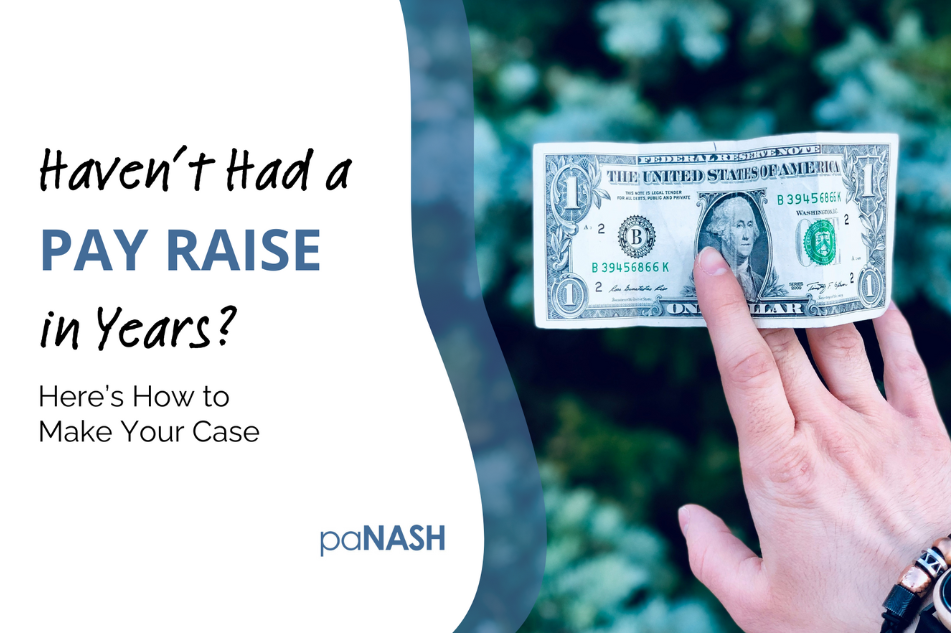|
|
It’s a tricky spot to be in: you’ve been doing solid work, maybe even going above and beyond, but you haven’t received a pay raise in what feels like forever.
You keep hoping your boss will notice and your loyalty or performance will speak for itself. But the months (and maybe even years) go by, and nothing happens.
If this sounds like you, it’s time to stop waiting and start advocating. Let’s talk about how to make a strong, confident case for the pay raise you deserve.
First, ask yourself: are you being underpaid?
Before approaching the conversation, it’s worth doing a quick reality check:
- Have your responsibilities grown since your last pay raise?
- Are others in similar roles earning more?
- Have you taken on additional tasks without a title or pay bump?
- Are you consistently exceeding expectations or delivering key results?
If you’re nodding your head to any of the above, it’s likely time to ask for a pay raise, or at the very least, initiate a conversation about compensation.
Why you might not have seen a pay raise yet
It’s frustrating, but here are a few common reasons why you might not have received a pay raise yet:
- Your manager assumes you’re fine with the status quo because you’ve never brought it up.
- There’s no formal review process or set schedule for raises in your company.
- Leadership is focused on budget cuts or competing priorities.
- You haven’t clearly demonstrated the value of your work in terms your company cares about.
These aren’t excuses. They’re just factors to consider when planning your approach. The good news? You can still make a case, even in a tricky environment.
How to build and present your case
Asking for a pay raise doesn’t have to be awkward or combative. Here’s how to make it a professional and strategic conversation:
1. Gather your data
Know the average pay for your role in your industry and region. Sites like Glassdoor, Payscale, and industry-specific reports are a great place to start.
2. Document your accomplishments
List specific examples of how you’ve contributed to business goals, saved time or money, improved processes, or added value in measurable ways. Always quantify your contributions and accomplishments.
3. Pick the right time
Ideally, schedule your conversation after an accomplishment you’ve achieved, at your annual review, or during budgeting season—whenever your manager is most receptive.
4. Practice what you’ll say
Be direct but professional. Say something like:
“I’ve really enjoyed contributing to [specific project] and taking on [new responsibility]. Based on my performance and market data, I’d like to discuss an adjustment in my compensation.”
5. Be ready for any response
If the answer is “not now,” ask what specific goals you’d need to meet to revisit the conversation and get a timeline. Then, take action toward achieving those goals.
Coaching can help you ask for a pay raise
As a career coach, I’ve helped clients:
- Craft clear, confident language to advocate for a pay raise
- Practice tough conversations with mock dialogues
- Use market data to build a solid, objective case
- Manage the emotional side of asking for more (because yes, it can feel vulnerable)
Sometimes, just having someone in your corner makes a big difference.
You deserve to be paid fairly
Your skills, time, and energy have value, and this value deserves to be recognized. If you’ve been underpaid or overlooked for too long, don’t wait for someone else to fix it. Step into the driver’s seat.
Schedule a complimentary consultation through the paNASH intake form. There’s no obligation, just an opportunity to talk about how to advocate for yourself, with strategy and support.
Because getting paid what you’re worth isn’t greedy. It’s smart, fair, and overdue.
Related resources
- Dreading Your Performance Review? Here’s How to Show Up Prepared and Confident
- When You Can’t Leave Your Job, but Still Need Career Help: 10 Red Flags
- How Your Grit Can Help You Negotiate a Better Salary
- Be Prepared, Not Scared, When It’s Time for Salary Negotiations
- The 7 Most Costly Mistakes People Make in Their Job Search
- On-demand course: Make More Money Without Taking a Second Job (bonus w/purchase of on-demand bundle)
- Interview with The Disruption Lab podcast





